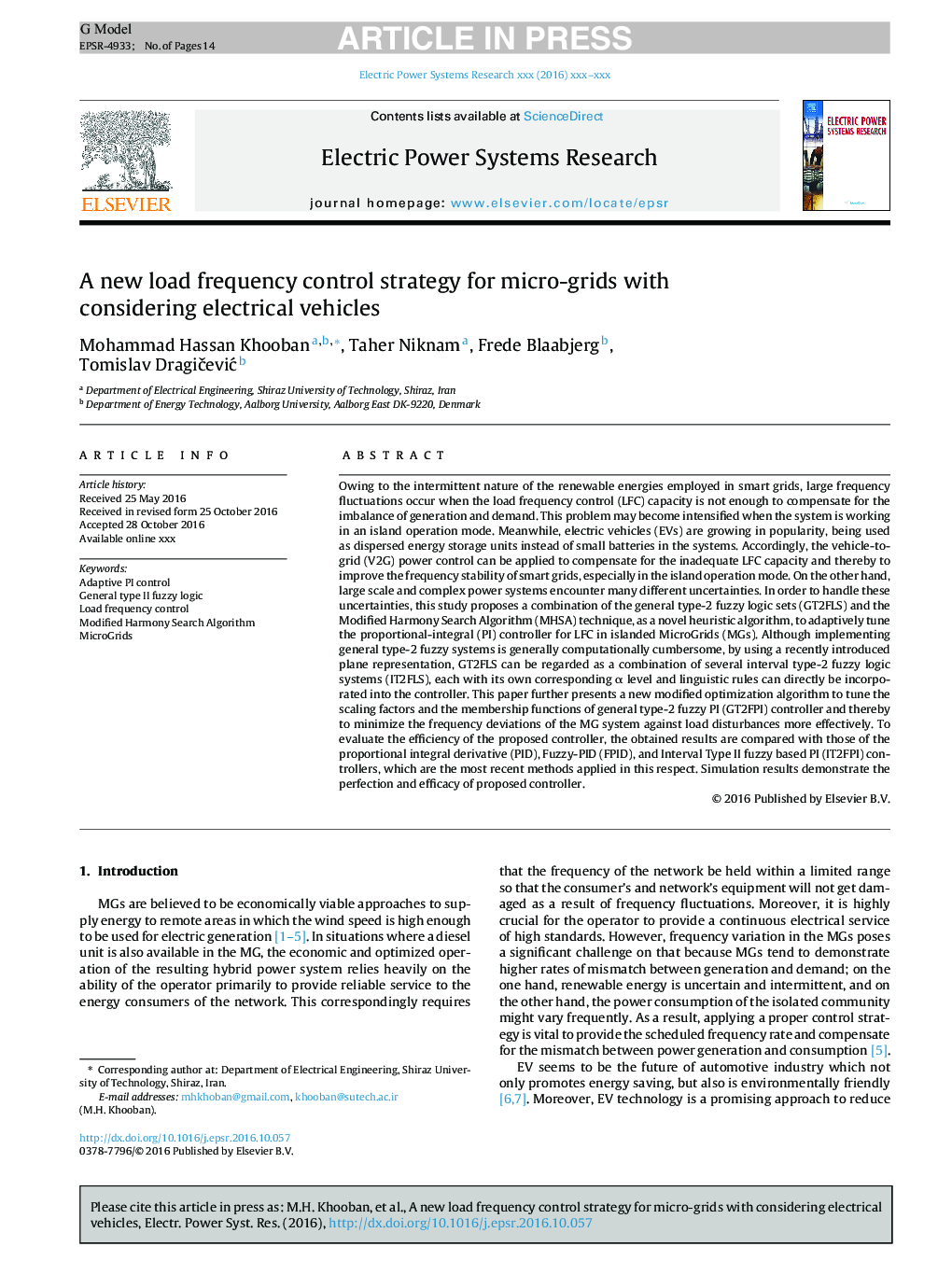| Article ID | Journal | Published Year | Pages | File Type |
|---|---|---|---|---|
| 5001262 | Electric Power Systems Research | 2017 | 14 Pages |
Abstract
Owing to the intermittent nature of the renewable energies employed in smart grids, large frequency fluctuations occur when the load frequency control (LFC) capacity is not enough to compensate for the imbalance of generation and demand. This problem may become intensified when the system is working in an island operation mode. Meanwhile, electric vehicles (EVs) are growing in popularity, being used as dispersed energy storage units instead of small batteries in the systems. Accordingly, the vehicle-to-grid (V2G) power control can be applied to compensate for the inadequate LFC capacity and thereby to improve the frequency stability of smart grids, especially in the island operation mode. On the other hand, large scale and complex power systems encounter many different uncertainties. In order to handle these uncertainties, this study proposes a combination of the general type-2 fuzzy logic sets (GT2FLS) and the Modified Harmony Search Algorithm (MHSA) technique, as a novel heuristic algorithm, to adaptively tune the proportional-integral (PI) controller for LFC in islanded MicroGrids (MGs). Although implementing general type-2 fuzzy systems is generally computationally cumbersome, by using a recently introduced plane representation, GT2FLS can be regarded as a combination of several interval type-2 fuzzy logic systems (IT2FLS), each with its own corresponding α level and linguistic rules can directly be incorporated into the controller. This paper further presents a new modified optimization algorithm to tune the scaling factors and the membership functions of general type-2 fuzzy PI (GT2FPI) controller and thereby to minimize the frequency deviations of the MG system against load disturbances more effectively. To evaluate the efficiency of the proposed controller, the obtained results are compared with those of the proportional integral derivative (PID), Fuzzy-PID (FPID), and Interval Type II fuzzy based PI (IT2FPI) controllers, which are the most recent methods applied in this respect. Simulation results demonstrate the perfection and efficacy of proposed controller.
Keywords
Related Topics
Physical Sciences and Engineering
Energy
Energy Engineering and Power Technology
Authors
Mohammad Hassan Khooban, Taher Niknam, Frede Blaabjerg, Tomislav DragiÄeviÄ,
